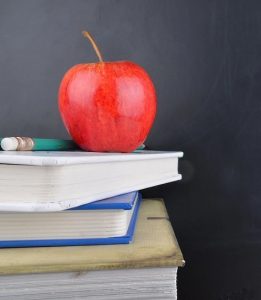New Laws Focus on ‘Justice-Impacted Individuals’ and Free State IDs for Inmates, Highlighting Democrat Leaders’ Misplaced Priorities on Crime
 SPRINGFIELD – New laws that change the term “offender” to “justice-impacted individual” in some state statutes, and that provide free state IDs to individuals released from Illinois jails highlight the misplaced priorities of Democrat leaders in combatting crime.
SPRINGFIELD – New laws that change the term “offender” to “justice-impacted individual” in some state statutes, and that provide free state IDs to individuals released from Illinois jails highlight the misplaced priorities of Democrat leaders in combatting crime.
State Sen. Jil Tracy (R-Quincy) says these new laws, along with previous measures like the SAFE-T Act, demonstrate how misplaced Democrat leaders’ priorities are when it comes to keeping Illinois families safe.
In recent years, crime has surged as Gov. JB Pritzker and his allies in the General Assembly have pushed dangerous “catch and release” policies. As of July, major crimes in Chicago have increased by nearly 60% compared to 2019 and 18% since 2022. During the 4th of July weekend alone, more than 100 people – the equivalent of two CTA buses – were shot in Chicago.
Tracy says the legislation signed into law during the week will do nothing to reduce crime in Illinois and instead prioritizes the rights of criminals over everyday citizens.
House Bill 4409 is a controversial proposal that generated negative headlines and significant public pushback. It changes references to certain “offenders” in state statutes by requiring them to be called “justice-impacted individuals.”
Also recently signed into law, Senate Bill 2803 expands a pilot program that offers free state IDs to individuals being released from state prisons, to also include individuals being released from federal prisons and county jails.
House Bill 4409 was signed into law on Aug. 2, while Senate Bill 2803 received the Governor’s stamp of approval on Aug. 6.
Illinois Enacts Update to Biometric Privacy Law
 Significant changes to the state’s controversial Biometric Information Privacy Act (BIPA) took effect during the week. The law was originally proposed to protect Illinois residents’ biometric data, but it created substantial unintended consequences, including multi-billion-dollar damage awards for situations that were never intended to be targets of the act.
Significant changes to the state’s controversial Biometric Information Privacy Act (BIPA) took effect during the week. The law was originally proposed to protect Illinois residents’ biometric data, but it created substantial unintended consequences, including multi-billion-dollar damage awards for situations that were never intended to be targets of the act.
Legislation was recently signed into law that amends the controversial BIPA statute, designed to reform digital privacy regulations and clarify the collection and use of biometric data in the state. This reform follows a suggestion from the Illinois Supreme Court in Spring 2023 to address oversights in the original BIPA legislation.
Tracy says that the new law aims to balance the protection of individual privacy rights with the need to reduce the legal and financial burdens on businesses. However, she notes that while the Legislature needs to address an obvious oversight within BIPA, there is still more work ahead to ensure individuals and businesses aren’t being exploited by legislative gaps.
Senate Bill 2979 was signed into law on Aug. 2.
Illinois State Fair Scheduled for August 8-18
 The 2024 edition of the Illinois State Fair officially opened on Aug. 8 with a formal ribbon-cutting ceremony in the morning, followed by the annual Twilight Parade in the evening.
The 2024 edition of the Illinois State Fair officially opened on Aug. 8 with a formal ribbon-cutting ceremony in the morning, followed by the annual Twilight Parade in the evening.
One of the event’s longstanding traditions is the construction and unveiling of the Butter Cow, a full-size sculpture made of roughly 500 pounds of unsalted butter on display in the Dairy Building.
The daily schedule for the Fair includes Agriculture Day on the first Friday, followed by Kids Day on Saturday, then Veterans and Gold Star Families Day, Senior & Scout Day, “Twosday,” Governor’s Day, Republican Day, First Responder & Healthcare Heroes Day, and wrapping up the closing weekend with Park District Conservation Day followed by Family Day.
Grandstand concerts throughout the Fair duration include Keith Urban, Motley Crue, Jason Isbell and the 400 Unit, Jordan Davis, Lil Wayne, the Jonas Brothers, Miranda Lambert, and Shaboozey. The final weekend will feature USAC and ARCA racing at the Grandstand.
For more information, visit https://statefair.illinois.gov/.
Illinois Students Lagging from Pandemic Disruptions as Federal Relief Nears End
 A recent study from the University of Illinois System reveals that many Illinois students are still struggling to recover from the learning disruptions caused by pandemic school closures. Despite efforts to lessen the impact, the findings indicate that only a quarter of public-school students have returned to their pre-pandemic academic levels in English language arts, with even fewer achieving the same in math. This underscores the ongoing challenges in educational recovery.
A recent study from the University of Illinois System reveals that many Illinois students are still struggling to recover from the learning disruptions caused by pandemic school closures. Despite efforts to lessen the impact, the findings indicate that only a quarter of public-school students have returned to their pre-pandemic academic levels in English language arts, with even fewer achieving the same in math. This underscores the ongoing challenges in educational recovery.
Since the pandemic, Illinois has experienced a decline of nearly 60,000 students in statewide enrollment. Additionally, there has been a significant rise in chronic absenteeism, further complicating the learning loss being experienced in the school system. These troubling trends highlight the extensive impact of the pandemic on student attendance and engagement.
These challenges come as billions in federal relief funds, which have been critical for educational support, are set to expire this year. As these funds run dry, schools will need to seek alternative funding to maintain essential programs and continue addressing the learning gaps.
DCEO Honors National Black Business Month
 The Illinois Department of Commerce and Economic Opportunity (DCEO) is spotlighting National Black Business Month this August.
The Illinois Department of Commerce and Economic Opportunity (DCEO) is spotlighting National Black Business Month this August.
Illinois is home to more than 148,000 Black-owned businesses, which employ around 196,000 people and contribute $4.6 billion annually to the state’s economy.
The DCEO is commemorating this month through an array of online and face-to-face events led by the Office of Minority Economic Empowerment.
These initiatives aim to celebrate and support Black-owned businesses and entrepreneurs across the state while also promoting economic growth and community engagement. Details on these initiatives are available on the DCEO website at https://dceo.illinois.gov/bbm2024.html.
